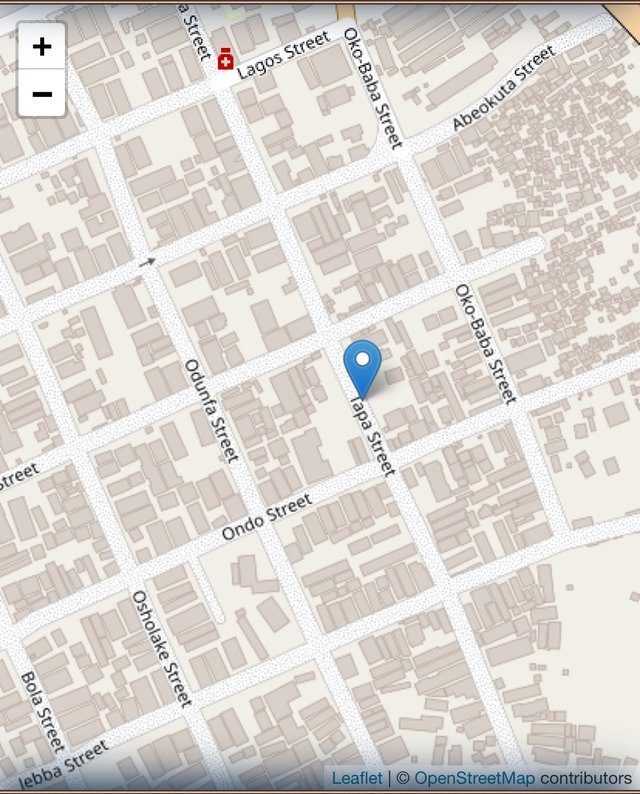"SLC-S25/W6 | Community World Tour: Idiomatic Expressions & Proverbs"
Greetings everyone and welcome to my blog. It’s been six exciting weeks and I am glad to be here again for this last week on proverbs and idiomatic expressions.
In my country and dialet, we define proverbs as the oil used in eating yam. Yam eating is not compete if there’s no oil mingled in it. This explains the crucial importance of proverbs to our culture and today I am going to be talking about two of these proverbs.
The first one in the context of living proverbs and the second one in the context of mordern wisdom.
“Living Proverbs”
Select a proverb or idiom from your region. Create a short video performance or reenactment that visually and emotionally expresses its meaning. You may use narration, acting, or animation.
On growing up mum in a bid to teach us would always say this proverb.
“Ajuru mbe ugboro olé ma ihe ga-Eme ya tupu omuru ako. Mbe asi na ona amuru ako mgbe ihe mere ndi ozo.”
This means that the tortoise was asked, how many times does something need to happen to him before he learns from it. The tortoise said that he learns from other people’s experiences and he doesn’t need to have a personal experience of something bad before learning.
Mum would always buttress this proverb with so many stories of the tortoise and his dealings with the other animals in the animal kingdom. The tortoise in the animal kingdom was not the king of the animals but he displayed a high level of wisdom and cunningness.
When a trap is set for him, he always scales through. He seems to always know more than what other animals knew and he was always ahead of them aside the fact that he was crafty, he was a bundle of wisdom.
Then one day one of the animals who was close to him went to seek counsel from him and to ask him the secret of his wisdom and craftiness. The tortoise asked the animal precisely the dog, “how many times would something happen to him before he learns from it”. The dog after thinking for a while answered three times.
The tortoise laughed at him and told him that for him, that sometime bad does not need to happen to him before he learns from it. He said he learns from other people’s experiences so as to avoid the bad happening to him and to let the good happen to him. And that’s the secret of his wisdom.
Bringing this home, one day mum came back and noticed that the meat in the pot has been skinned. Well we cooked rice and chicken on this special Sunday but my younger sister went and tampered with some of the meat and mum reported to daddy.
Daddy called us all and asked who tampered with the meat and my younger sister owned up. My father flogged her so much on her butt that the lines of the cane was stamped on her butt for days. She couldn’t sit but cried all through.
This experience stuck with me for life. From that day all the temptations I ever used to have to tamper with the meat in the pot vanished. I didn’t need to experience the flogging like my sister before learning not to steal from the soup pot. Just like the tortoise, I learnt from my sisters experience.
“Modern Wisdom”
Invent your own proverb one that reflects today’s challenges or your personal journey. Present it in a short creative video and tell us why it matters.
There’s an old proverb I enjoy a lot and it says
Ihe okenye huru ebe otugwu ala, nwata rigo elu oji, ogaghi ahu ya.
What this proverb means is that what an elder sees sitting down, if the child climbs the iroko tree, he won’t see it.
I twerked this in a mordern way and I’d always tell the younger people I deal with that
”what an elder sees sitting down, if a child googles it, the child will not see it.
I twerked this to suit our modern time of information and technology. In the Olden days, the iroko tree is seen as one of the highest heights and anyone who climbs it can see very far. Now the internet can be classified as the iroko tree of our time where people get so much wisdom and information.
But in this case, the wisdom and experiences of an elder can never be quantified to any amount of information a child wants to get from the internet. So the proverb points to the fact that children should listen to the aged advices and wisdom coming from the elders or else they would have to face the repercussions of negligence.
Video explanation
TYPE LESS SMILE MORE
These proverbs are more than just words, they are ageless lines of wisdom woven into the fabrics of our culture and ethical upbringing.

Tapa street Ilaje-Bariga, Ilaje Road, Bariga, Shomolu, Lagos State, 102216, Nigeria
Thank you so much @kouba01 for these beautiful six weeks experience. I had fun through it all.

Wow, your video gives me goosebumps. The way you say the idioms in your language without making a mistake in pronunciation and the likes. Sometimes I wonder how our grandparents form proverbs all by themselves for our use as there were no means of technology to sid research. It's the way the proverb usually rhyme with the meaning that keeps me off. Can I ask? What proverb do you think applies to you the most?
🤣🤣🤣
My dear it’s not easy..with all these technologies and advancements, these people will soon make us forget our mother tongue.
The second proverb I twerked applied to me alot and I usually use it for others too.😁
Wow, quite interesting.
@tipu curate
Upvoted 👌 (Mana: 5/8) Get profit votes with @tipU :)